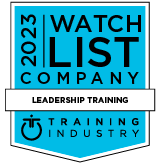Psychological Safety in the DX Office

Here at DX, we work hard to practice what we preach when it comes to our CARE Model and creating a psychologically safe work environment.
Professor and author of her newest book, The Fearless Organization: Creating Psychological Safety in the Workplace for Learning, Innovation, and Growth, Amy Edmonson talks about why a culture dedicated to open candor and having the courage to speak up is a strategic asset to be developed in all companies.
“Psychological safety at work takes effort. It’s not the norm. But it’s worth the effort,” says Professor Amy Edmondson.
These are just a few ways we work as a team to feel safe and take interpersonal risks in our professional and personal lives.

Psychological Safety Has Given Me the Confidence To Speak My Mind.
Audrey Hebson, Director of Program Management
I still remember the first time I had to give Alex, our CEO, constructive feedback.
I'm a person who likes to prepare as much as possible when presented with new challenges. So, in preparation, I hand-wrote everything I was going to say.
I was still terrified.
I remember shaking as I presented my thoughts to him.
I didn't know how I would be received or if my opinion would be respected. This moment was pivotal for me in my work life.
Alex carefully listened to me and what I had to say. I finally felt like I was in a place where my opinion mattered.
Since then I now feel comfortable speaking up in meetings and providing my perspective, rather than keeping my opinions to myself and going with the flow as I did previously.
I have had several difficult conversations with everyone on my team, not just Alex. We give and receive feedback and have grown and matured together as a result.
Our team feels free to say what’s on our minds. That’s something that has given me confidence as a person.
It’s also helped our business.
In times where our company has had to change and change quickly, we have been upfront with our concerns and able to come up with meaningful solutions to any challenge we've faced.
I’m grateful to be in a space where we actively work on our psychological safety with each other.
It makes us better – individually and as a team.
Psychological Safety Grants Me The Freedom to Say "No" to My Boss.
Kristin Dammacco, VP of Operations
A running gag in our office is that my favorite thing to do is say “No.” Specifically, to Alex, my boss.
Think about that – the act of saying “no” is something I am comfortable enough to say to my boss that it has become a running joke.
Without having psychological safety that would be impossible.
By virtue of who we are as people and our positions and purposes within DX, Alex and I find ourselves at odds often enough.
That’s not to say that we don’t agree on many things, but that is way less interesting to talk about.
Alex and I tend to approach problems from radically different directions – which is a wonderful asset for a small company to have. Though, it can be bumpy.
When I was hired it was for a far different position. I was ok at it, but my true talents lie in different directions.
Alex took the time to develop our relationship and in building that relationship he could see I would serve the company better and be happier in a different role.
My old position was taken over (and expanded) by the right person for that job.
I was moved into my current position. I’m better for it and the company is better for it – but that took an act of vulnerability from Alex.
In order to make this shift, both Alex and I had to be clear about our goals and objectives.
He had to be ok giving me the autonomy I need to do my job and I crave to be fulfilled at work (which I will admit is a lot more than many people would be comfortable with).
We have to maintain our relationship because we do disagree on stuff! We have to be able to talk about those disagreements in a way that is healthy, productive, and respectful.
All of this lets both of us have the equity in our professional relationship that lets DX function, and breath, and grow.

What this means to me on a more personal basic level – I am more fulfilled in this job than I have ever been.
I have the ability to maintain my home life (which has gotten a lot more difficult in the past year with the unexpected loss of my father and the addition of a foster child to my house.)
I know I can tell my boss that I can not handle something right now and I will be supported.
I know that I can disagree with my boss and I can talk to him about why I disagree without worrying that he will be punitive.
I know this for sure because I have done them.
I am growing at work and in a career.
DX is not just a job for me. I have a purpose, I am connected to a mission, and I don’t have to compromise who I am to have those things.
All I have to do is give the same type of energy to the relationship with my boss.
Alex took the time to get to know how I liked to be coached, he asks for feedback constantly and gives both positive and constructive, he checks in with me as a person. Now, I do the same for him.
This is a never-ending cycle. We both work to maintain that psychological safety.
Somedays we are better at it than others and that’s ok. We both know that we are working on it and we know when to let each other know when need help.
I can say “No.” And someone listens to me when I do.
That is priceless.

Psychological Safety Brings Me and My Team Peace of Mind.
Alex Draper, CEO
There’s an old joke in the military that those who make general or admiral are told: “Congratulations, you’ll never eat poorly again and you’ll never hear the truth again.”
That’s also the risk for CEOs.
When you are building a company from scratch, you need to fail fast, learn, and adapt accordingly.
While I have a clear vision, years of experience to draw on, and good gut instinct, I don’t get it right all the time.
It was frustrating in the early years where everything was fine.
My employees would go along with what I wanted and everybody seemed to be ok with my leadership. But I am not perfect.
Like all humans, I make mistakes. I do and say dumb things and I need to know when I get it wrong.
How can you improve unless you know what to improve?
How can I treat my team how they want to be treated unless they tell me?
So, I got it more wrong than right in the early years, but I worked hard on the things I knew would build psychological safety and encouraged people to speak up.
I constantly asked for feedback and celebrated when I received constructive feedback.
It was slow at first, but eventually even the timidest employees now constantly let me know what I can I do to improve and what the business can do to improve.
I can’t act on all of it and sometimes I don’t agree with the feedback I receive. However, it's much better than living in silence, which leads to blissful ignorance, which is not good for me as a leader.
I no longer have to spend weekends thinking or assuming what my team is feeling or thinking because I already know.
This provides me peace of mind that neither I nor my team has to harbor over what’s on their mind.
The emotional baggage of both having to harbor, and knowing people are harboring, is exhausting. It was exhausting in the early years.
Now it's uplifting and the brightest part of my job when someone speaks up – especially when it’s a tough thing to speak up about.

Psychological Safety Enables Me to Give and Receive Authentic, Truthful Feedback.
Matt Sandel, Director of Design
As cheesy as it sounds, psychological safety turned our team into a high functioning family.
I feel immensely comfortable speaking my mind knowing full well that someone might come back with complete dry sarcasm, a chide smile and prodding comment, or maybe even a compliment!
Whether it be any of the above, I know that I will receive an authentic response.
Just like your best friends will call you out on your BS, so should your team.
How will you change for the better if you don’t know what needs to change?
The only way you can get better is by first realizing what you need to get better on.
Personally, I have grown in confidence thanks to psychological safety.
I no longer have fear of social recourse with my team because I am speaking from my heart and my team knows that.
We all have tried being someone that we are not at one point or another in our lives.
I have learned to have confidence in my voice, to speak up, and let myself be clear in what I'm saying.
This doesn't come from confidence that I am right, it comes from the confidence that my team will have a thoughtful discussion even if there is conflict or disagreement.
They will give me the gift of feedback on where I need to improve.
Without psychological safety, feedback is an extremely daunting concept for both the giver and receiver and rarely happens.
Psychological safety cultivates a culture of feedback and makes it a normal part of everyday life.
Something that I have taken to heart is to be kind, not nice.
For example, if someone has food in their teeth, are you more likely to be nice and not lean into the possible social awkwardness of letting them know? Or do you have the confidence to speak up, be kind, and let them know?
Since delving into the world of psychological safety with my team, I always land with the latter and try to be kind over being nice.
This notion has also permeated my personal life.
With my fiancée we have cut out the white lies, we’ve grown more trusting and constantly work to improve each other.
Psychological safety greatly encourages truthful knowledge and honest information to flow freely in my personal and professional life.
I have come to realize that if I speak authentically, it will much more likely to be met in kind.

Psychological Safety Strengthens Our Adaptability and Internal Trust as a Company.
Ryan Aguiar, Leadership & Development Designer
When I started at DX, I had a complicated relationship with psychological safety.
While it was apparent that DX very much lived the type of culture it was trying to spread, I was hesitant.
This was not the first time I had joined an organization that touted a comfortable and compassionate culture, and my previous experience cautioned me to not buy-in too quickly again.
After a couple of months of seeing how much the entire team was dedicated to a candid and psychologically safe internal culture, I started to get comfortable and dropped my guard a bit more.
In the time since then, I feel like DX has never faltered when it came to upholding psychological safety as a value in the organization.
It is a cornerstone of who we are as a culture and I believe it is part of the reason why we have been able to stay adaptable as we adjust to a new way of doing things.
If it weren’t for that, I would likely be at a self-destructive level of stress right now as I wonder what will happen if our financial situation becomes dire.
It is hard to create constructive conflict when I am worried it might be held against me.
Congruity becomes the safer play, innovation and collaboration would become stagnant, and our product would suffer.

Psychological Safety Makes the Workplace Feel Like Home.
Emily Markanich, Director of Sales Support & Marketing
One of the first things I heard when interviewing for a job at DX is that "we drink our own Kool-Aid". Turns out, after my first-week in-office, they weren't lying.
When it comes to teaching about psychological safety, the DX team practices what we preach.
In my first week, I gave Alex, our CEO, some tough feedback and asked for a title change. Not only did I get the title change, but I also found out that my feedback was the best part of his first week with me.
Surprised would be an understatement. From then on out Alex would feel down if he had a week where he DIDN'T get feedback from me.
On top of that, I received valuable feedback from Alex and our team on times I made a mistake and then they encouraged me to keep going for it. To keep on making mistakes while learning from them and applying those learns.
This will be my 5th month with DX. It's been a bumpy ride and has brought our team closer.
DX feels like a family.
We laugh together, cry together, say no to each other, and at the end of the day always have each other's backs.
Insights

Subscribe to Our Monthly Newsletter!
For managers and talent professionals who truly believe in putting people first, the CARE to Win blog is your gateway to the latest insights on human-centric leadership. Join us as we champion the people first movement.
Need some time apart? Are we emailing you too often? Just give us your feedback, and we promise we’ll respond. We really do care. And if it’s still too much, just unsubscribe. It’s cool.




